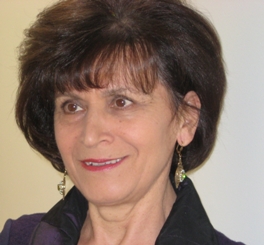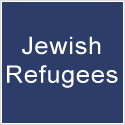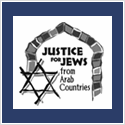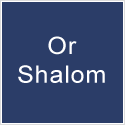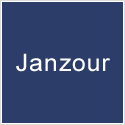Gina Waldman
900,000 Jewish people were expelled from the Arab lands they called home.
These are the refugees whose story was never told. It is the story of my family and I will share it with you tonight.
My family came from an ancient Jewish community known as the Mizrachim. They had lived in Libya for over 2,000 years. I grew up in an upper middle class Jewish family. My father imported field equipment for Oil companies. Although Jews had lived in Libya for hundreds of years, they were forced to live as “Dhimmis”. Under Islam, Dhimmi subjects were second class citizens, which were not granted the same rights as Muslims. They were not given citizenship, and did not enjoy basic human rights or freedom of movement.
When the Six-Day-War broke out between Israel and its Arab neighbors, I was 19 year old. My mother called me at work to tell me that thousands of people had taken to the streets rioting and burning Jewish properties. She begged me to find a hiding place, because it was too dangerous for me to return home.
One of the British engineers in the company agreed to hide me in his home. Incidentally, he was Christian. From my hiding place, I watched the fires consume my father’s warehouse. Killing people, rampaging and burning Jewish properties went on for days.
I lived in hiding for a month before returning home. All Jews were expelled and their property, including their bank accounts, were expropriated by the government. We were only allowed to take a few suitcases and very little money.
The day we left, armed soldiers put us on a truck to escort us “safely” to the airport. Instead, they dumped us on the side of the road. We boarded an airport bus, which then stopped in the middle of the desert. The driver said that there was engine trouble and the conductor allegedly went to get help and left us alone, once again. I looked to my father for support, but he was frozen in horror. I darted off the bus and ran to find help. As I ran my whole body shook with fear, but anger drove me forward.
When I reached the gas station, the conductor was holding the phone. After struggling with him, I snatched the phone out of his hand and called the British engineer who had hidden me. I turned to leave but now, the door was blocked by three men, including the conductor. I was petrified. My throat tightened. My heart was pounding. I forced my way through the door and ran back to the bus.
Gasoline was everywhere, the driver held a box of matches in his hand. The plan was to burn the bus with my family in it.
Just then, the British engineer drove up. My family jumped into his car and we sped off to the airport.
Upon arrival, the porters refused to load our luggage and spit on us. Our flight took us to Rome, Italy, where my family still lives.
My story is not unique, it is one which is reverberated amongst 900,000 Jewish refugees, dispossessed and uprooted from their homes throughout the Middle East and North Africa.
The Jews of Libya, like other Jews of the Middle East and North Africa, formed their own culture. This Judaeo-Islamic tradition was a blend of the customs they brought with them, integrated with the traditions of their Muslim environment. That is why, for hundreds of years Jewish women living under Islam, have been greatly influenced by the Muslim tradition. In Libya, the Jewish community did not honor women’s education. It was rare for women to pursue higher education or a career. Their place was in the home. By Jewish standard, this is oppressive and unequal.
Jewish women were confined behind a veil. Not a veil of cloth, like the one that covers Muslim women. Instead, it was a veil built within the Jewish social structure, which was based on fear. Fear of persecution, fear of being different. Fear of simply being Jewish. One such veiled woman was my mother. When her father died, her formal education was halted and she worked as a housekeeper. When she was 17, her marriage was arranged to a man twice her age. Her maktub, her destiny, was sealed. It was my maktub to avoid the same trap. While still living in Libya, I took a trip to Italy. I was fourteen years old. I was confronted with a different lifestyle. My eyes were opened. The world was unveiled to me. This first exposure to Western culture made such an impact that returning home to Libya, felt like being cocooned within the veil again. Now that I had tasted freedom, I could not be confined anymore.
It was not just the women that were stripped of their rights and freedoms, but all Jewish people in the Arab lands.
Life was not easy for any Jew. In fact, most of them suffered discrimination and persecution. Their treatment as Dhimmis – second class citizens, played a crucial role in their identity and forced them into isolation.
There were 900,000 Jewish refugees that were expelled from the Middle East and North Africa. These are the forgotten refugees.
During WWII, Haj Amin al- Hussayni, the Mufti of Jerusalem, conspired with Adolf Hitler to annihilate the Jews of North Africa. Tripoli, my hometown, like many other cities in North Africa, became the scene of daily pogroms incited by the Arab League. Hundreds were left dead, even more were homeless. By 1976 most of these Jewish communities had disappeared and their tradition no longer exists.
It is because of these forgotten refugees that I founded an organization called JIMENA.
JIMENA stands for Jews Indigenous to the Middle East and North Africa.
JIMENA has three main goals:
First, raise awareness of the 900,000 Jewish refugees from the Middle East and North Africa, so that they will no longer be forgotten.
Second, act as a moral counterweight to the Palestinians, not by diminishing their plight, but by demonstrating the success of our own absorption. Of the 900,000 refugees, over 600,000 were successfully absorbed by Israel.
And third, to fight current anti-Semitism.
This current anti-Semitism has been on the rise since the September 11th attacks on our nation.
With the tragedy of September 11th that has so deeply scarred our nation, my personal wound has been reopened. This is a wound that will never fully heal. Since September 11th, my resolve to fight for democracy and freedom has been reinforced. Everyday when I wake up, I think of the victims of September 11th. I ask them for inspiration and guidance. I ask them to give me the courage to remember that love is stronger than hate. I ask them to give me the strength to convey the message that compassion is stronger than revenge.
To the Palestinian mother who sends her child to become a suicide bomber, I have this to say:
Stop shooting hates as a drug in your child’s veins. Hate is a drug from which there is no recovery.
Haram Alelk! Shame on you!
I am a mother just like you. I feel the pain of your exile, because I too was exiled. But despite my pain, despite my despair, despite my anger, I would NEVER send my child on a suicide mission. There is no desperation in the world that justifiesthe murder of innocent victims.
As Elie Wiesel once said, “The fanatic that kills in God’s name, makes his God a murderer!”
